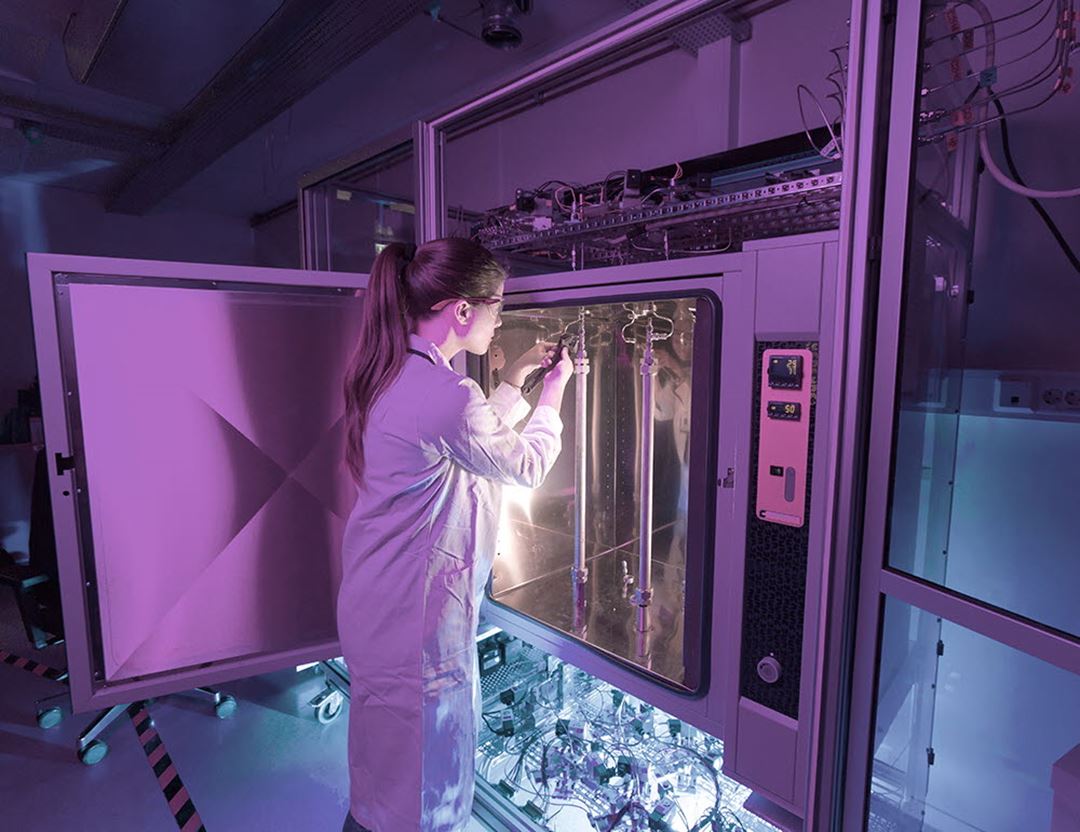
Most of the chemical hydrogen is produced by steam-methane reforming. The state-of-the-art technology for hydrogen purification is Pressure Swing Adsorption (PSA). We have capabilities to produce, characterize and test all kind of porous materials related to this operation. We can also test some PSA configurations in a 4-column PSA unit and optimize the cycle to obtain maximum profit.
An optimized adsorption process is the result of good interaction between materials science and process engineering. Resembling nature we can say that the adsorbent is the heart of the unit and the process engineering provides the brain: is necessary to synchronize all the operation to make better use of the adsorbent. In a PSA unit, the pressure oscillates between high pressure where the contaminants are removed to the low pressure where the adsorbent is partially regenerated.
SINTEF has a long tradition of producing adsorbent materials from powders to shaped bodies (pellets, extrudates and now monoliths). We can measure isotherms of pure gases and up to ternary mixtures and also diffusion of pure gases, providing all necessary parameters to design and model a Pressure Swing Adsorption (PSA) or other adsorption-based unit.
We have recently incorporated a 4-column PSA unit that can operate from vacuum to 70 bar of pressure that can cover most of the separation conditions found industrially to produce hydrogen. We can measure breakthrough curves and run cyclic experiments with many different regeneration configurations, including multi-feed, lead-trim and heavy gas rinsing among others. The necessary steps as well as the synchronization can be done using our modelling expertise.
